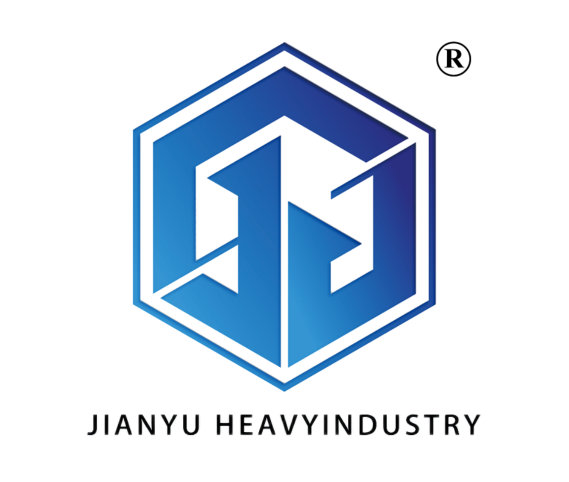บทบาทสำคัญของการเลือกผู้ผลิต Roots Blower
ผลกระทบต่อประสิทธิภาพในการดำเนินงานและความทนทาน
การหาผู้ผลิตที่มีคุณภาพดี เครื่องพัดราก มีความสำคัญมากเมื่อต้องการให้เครื่องจักรมีสมรรถนะที่ดีกว่าและใช้งานได้ยาวนานมากขึ้น คุณภาพของพัดลมที่ดีช่วยประหยัดค่าไฟฟ้าได้มาก บางครั้งสามารถลดการใช้พลังงานลงได้ถึง 20 ถึง 30 เปอร์เซ็นต์ในกระบวนการต่าง ๆ บริษัทที่ยึดมั่นกับผู้ผลิตที่มีชื่อเสียงในการผลิตเครื่องจักรที่ทนทาน มักพบว่าพัดลมของตนมีอายุการใช้งานยาวนานกว่าก่อนที่จะต้องเปลี่ยนใหม่ ซึ่งหมายถึงการประหยัดเงินในการซื้ออะไหล่ราคาแพงในระยะยาว นอกจากนี้ การเลือกผู้ผลิตที่เชื่อถือได้ยังช่วยลดเวลาที่ต้องรอคอยการซ่อมแซมหรือเปลี่ยนเครื่องใหม่ ทำให้กระบวนการผลิตดำเนินต่อเนื่องโดยไม่มีสะดุด ปัจจัยทั้งหมดนี้แสดงให้เห็นอย่างชัดเจนว่าการเลือกผู้ผลิตที่เหมาะสมไม่ใช่แค่เรื่องสำคัญ แต่เป็นสิ่งจำเป็นอย่างยิ่งหากบริษัทต้องการให้ระบบพัดลมโรตอร์ (roots blower) ทำงานได้อย่างมีประสิทธิภาพตลอดอายุการใช้งาน
ความเสี่ยงจากการผลิตพัดลมรูทส์ที่ไม่มีคุณภาพ
การผลิตเครื่องเป่าลมโรตารี (Roots Blower) ที่มีคุณภาพต่ำนำมาซึ่งปัญหาร้ายแรงที่ธุรกิจส่วนใหญ่มักมองข้าม เมื่อผู้ผลิตตัดส่วนสำคัญในการผลิต อุปกรณ์มักจะเสียหายบ่อยครั้งมากขึ้น และนั่นหมายความว่าค่าใช้จ่ายในการบำรุงรักษามีแนวโน้มเพิ่มขึ้นประมาณ 15% เมื่อเทียบกับที่บริษัทต้องจ่ายสำหรับเครื่องเป่าลมที่ผลิตโดยผู้ผลิตที่เชื่อถือได้ เครื่องเป่าลมที่ล้มเหลว ผลิตภัณฑ์ ลดความสามารถในการผลิตจริงของโรงงาน พร้อมทั้งส่งผลให้ตัวเลขทางธุรกิจหลักในรายงานลดลง ซึ่งโดยธรรมชาติแล้วนำมาซึ่งการขาดทุนทางการเงินในระยะยาว นอกจากนี้ ผู้ผลิตที่มีคุณภาพต่ำหลายรายยังไม่สามารถปฏิบัติตามข้อกำหนดพื้นฐานให้ถูกต้อง ทำให้ลูกค้าต้องเผชิญกับความเสี่ยงด้านค่าปรับและผลเสียอื่น ๆ ที่เกิดขึ้นตามมาในอนาคต ธุรกิจที่มีวิสัยทัศน์กว้างไกลตระหนักถึงอันตรายเหล่านี้และเลือกทำงานเฉพาะกับผู้ผลิตที่ได้รับการพิสูจน์แล้วว่าเชื่อถือได้ เพื่อให้ได้อุปกรณ์ที่มีความน่าเชื่อถือ หลีกเลี่ยงปัญหาทั้งหมดเหล่านี้ และรักษาการดำเนินงานให้ดำเนินไปอย่างราบรื่นเดือนแล้วเดือนเล่า
การประเมินชื่อเสียงและความคิดเห็นของผู้ผลิต
การประเมินสถานะในอุตสาหกรรมผ่านแหล่งข้อมูลที่น่าเชื่อถือ
การพิจารณาผู้ผลิตพัดลมรากต้องตรวจสอบว่าพวกเขายืนอยู่ตรงจุดใดในอุตสาหกรรม โดยอ้างอิงข้อมูลที่เชื่อถือได้ รายงานและบทความในอุตสาหกรรมที่ตีพิมพ์โดยนิตยสารการค้าที่ได้รับการยอมรับ จะช่วยให้เข้าใจภาพรวมว่าผู้คนมองเห็นบริษัทเหล่านี้อย่างไร นอกจากนี้ ยังควรพิจารณาใบรับรองจากบุคคลที่สาม และรางวัลที่องค์กรในอุตสาหกรรมมอบให้ ซึ่งข้อมูลดังกล่าวจะช่วยยืนยันว่าบริษัทมีการปฏิบัติตามมาตรฐานโดยทั่วไปหรือไม่ การเข้าร่วมในฟอรั่มออนไลน์และงานเครือข่ายในภาคส่วนนี้ก็เป็นอีกช่องทางหนึ่งที่มีประโยชน์ การพูดคุยกับผู้ที่เคยทำงานร่วมกับผู้ผลิตเหล่านี้สามารถเปิดเผยข้อมูลที่อาจไม่สามารถหาได้จากที่อื่น ผู้เชี่ยวชาญหลายคนพบว่าบทสนทนาแบบไม่เป็นทางการเหล่านี้มีความน่าเชื่อถือมากกว่าเอกสารทางการเสียอีก
การวิเคราะห์รูปแบบความคิดเห็นของลูกค้า
การดูว่าลูกค้าพูดถึงสิ่งต่าง ๆ อย่างไร ช่วยให้เราเห็นปัญหาที่เกิดขึ้นซ้ำ ๆ เกี่ยวกับประสิทธิภาพของผลิตภัณฑ์และความสม่ำเสมอในระยะยาว เมื่อเราวิเคราะห์รีวิวที่ผู้คนทิ้งไว้ตามอินเทอร์เน็ต ก็จะได้ภาพรวมที่ค่อนข้างชัดเจนว่าผู้ผลิตรายใดทำได้ดี และที่ไหนที่ยังต้องแก้ไข แพลตฟอร์มอย่างเช่น Trustpilot และ Google Reviews ช่วยให้ธุรกิจสามารถติดตามระดับความพึงพอใจด้วยตัวเลข ทำให้มองเห็นแนวโน้มได้ง่ายขึ้น แพลตฟอร์มเหล่านี้รวบรวมข้อมูลมหาศาลและนำเสนอในรูปแบบที่เข้าใจง่าย เพื่อแสดงให้เห็นว่าผู้ใช้ส่วนใหญ่คิดเห็นอย่างไรเกี่ยวกับประสบการณ์ของพวกเขา การตรวจสอบโซเชียลมีเดียก็เป็นอีกวิธีหนึ่งในการรับฟังปฏิกิริยาทันทีเมื่อมีสิ่งผิดปกติเกิดขึ้น บริษัทที่ตอบสนองอย่างรวดเร็วต่อข้อร้องเรียนบน Twitter หรือ Facebook มักแสดงให้เห็นว่าพวกเขามีความใส่ใจในการแก้ไขปัญหาและรักษาคุณภาพของผลิตภัณฑ์ ข้อมูลทั้งหมดนี้มีความสำคัญอย่างมากเมื่อบุคคลหนึ่งต้องการเลือกผู้ผลิต Roots Blower ที่น่าเชื่อถือ เพราะมันบ่งบอกว่าบริษัทดังกล่าวฟังเสียงลูกค้าและให้ความสำคัญกับข้อกังวลของพวกเขาจริงหรือไม่
ความชำนาญทางเทคนิคและความสามารถในการนวัตกรรม
การลงทุนใน R&D เป็นตัวบ่งชี้ความน่าเชื่อถือ
เมื่อผู้ผลิตให้ความสำคัญกับการวิจัยและพัฒนาเป็นอันดับแรก พวกเขากำลังสื่อว่านวัตกรรมถือเป็นสิ่งสำคัญที่สุดสำหรับองค์กรของตน บริษัทส่วนใหญ่ใช้จ่ายเงินประมาณ 5% ถึง 10% ของรายได้ทั้งหมดไปกับงบประมาณด้านการวิจัยและพัฒนา การลงทุนในลักษณะนี้ช่วยให้สามารถปรับปรุงคุณภาพของผลิตภัณฑ์ ปรับแต่งรูปแบบ และพัฒนานวัตกรรมที่ออกแบบมาเพื่อตอบโจทย์ความต้องการที่แท้จริงของลูกค้า รายงานอุตสาหกรรมต่างก็ชี้ให้เห็นอย่างต่อเนื่องว่า บริษัทที่ลงทุนเงินจำนวนมากในงานวิจัยและพัฒนา มักจะอยู่ในระดับแนวหน้าเมื่อพูดถึงการพัฒนาผลิตภัณฑ์ เนื่องจากพวกเขาติดตามแนวโน้มทางเทคโนโลยีอย่างใกล้ชิด และปรับตัวให้เข้ากับการเปลี่ยนแปลงของตลาดได้อย่างรวดเร็ว การพิจารณาดูสิทธิบัตรของบริษัทสามารถบ่งชี้ถึงความสามารถในการนวัตกรรม (Innovation capability) ได้เป็นอย่างดี โดยทั่วไปแล้ว บริษัทที่มีสิทธิบัตรจำนวนมาก มักแสดงให้เห็นว่าองค์กรเหล่านี้จริงจังกับการสร้างสรรค์แนวคิดใหม่ ๆ และหาทางแก้ไขปัญหาที่ดีกว่าเดิมอย่างต่อเนื่อง นี่จึงเป็นเหตุผลว่าทำไมเราจึงมักเห็นบริษัทเหล่านี้เป็นผู้นำตลาดมาอย่างต่อเนื่องทุกปี
ความลึกซึ้งทางวิศวกรรมสำหรับแอปพลิเคชันที่ซับซ้อน
การพิจารณาว่าผู้ผลิตมีทักษะวิศวกรรมแบบไหนบ้างนั้น มีความสำคัญอย่างมากในการตัดสินใจว่าพวกเขาสามารถรับมือกับงานที่ซับซ้อนได้หรือไม่ ผู้ผลิตที่ดีที่สุดจะมีวิศวกรที่เชี่ยวชาญในหลากหลายสาขา จึงสามารถเสนอแนวทางที่แม่นยำและตรงตามความต้องการเฉพาะของลูกค้าแต่ละราย ความรู้ความสามารถที่ลึกซึ้งของพวกเขาทำให้สามารถแก้ปัญหาที่ยากๆ ได้อย่างง่ายดาย ซึ่งเป็นสิ่งสำคัญมากในอุตสาหกรรมที่เครื่องจักรพิเศษมีบทบาทหลัก ตัวอย่างจากงานจริงในอดีตสามารถสะท้อนความเชี่ยวชาญทางด้านวิศวกรรมนี้ได้ดี ลองพิจารณาโครงการเหล่านั้นที่มีความซับซ้อนทางเทคนิค และดูว่าบริษัทเหล่านี้สามารถตอบสนองข้อกำหนดที่เข้มงวดได้อย่างสม่ำเสมอเพียงใด ซึ่งจะช่วยสร้างความไว้วางใจให้กับธุรกิจอื่นๆ ที่กำลังมองหาพันธมิตรที่ไม่ใช่แค่พูดเก่ง แต่สามารถปฏิบัติได้จริง เมื่อต้องเผชิญกับความท้าทายที่ซับซ้อนซ้ำแล้วซ้ำเล่า
ใบรับรองคุณภาพสำหรับผู้ผลิต Roots Blower
การวิเคราะห์ข้อกำหนดการปฏิบัติตามมาตรฐาน ISO และ CE
เมื่อพิจารณามาตรฐานด้านคุณภาพของผู้ผลิตปั๊มลมโรตารี่ (Roots Blower) การเข้าใจความหมายของการรับรอง ISO 9001 และ CE มีความสำคัญอย่างมาก บริษัทที่ได้รับการรับรอง ISO 9001 นั้นโดยพื้นฐานจะปฏิบัติตามกระบวนการควบคุมคุณภาพที่เข้มงวดตลอดขั้นตอนการผลิต ซึ่งช่วยให้ผลิตภัณฑ์มีความน่าเชื่อถือและลดปัญหาต่าง ๆ ที่อาจเกิดขึ้นในระยะยาว สำหรับองค์กรที่เผชิญปัญหาเกี่ยวกับความล้มเหลวของอุปกรณ์หรือความล่าช้าในการดำเนินงาน มาตรการควบคุมคุณภาพประเภทนี้จึงมีความแตกต่างอย่างมาก ขณะเดียวกันเครื่องหมาย CE แสดงให้เห็นว่าผลิตภัณฑ์นั้นเป็นไปตามข้อกำหนดด้านความปลอดภัยของสหภาพยุโรป อุตสาหกรรมหลายประเภทจำเป็นต้องได้รับเครื่องหมายนี้ก่อนที่จะพิจารณาซื้ออุปกรณ์ใด ๆ ดังนั้นเมื่อผู้ผลิตมุ่งเน้นการได้รับการรับรองทั้งสองอย่างนี้ พวกเขาแสดงให้ลูกค้าเห็นว่ามีความใส่ใจในการผลิตสินค้าที่ปลอดภัยและเชื่อถือได้ ผู้ใช้ปลายทางจึงมั่นใจได้ว่าการลงทุนของพวกเขามาจากแหล่งที่น่าเชื่อถือ
เกณฑ์การรับรองเฉพาะอุตสาหกรรม
อุตสาหกรรมต่างๆ เช่น น้ำมันและก๊าซ หรือการผลิตอาหาร มักต้องการใบรับรองเฉพาะก่อนที่จะเริ่มทำงานร่วมกับผู้ผลิต เช่น มาตรฐาน API สำหรับอุปกรณ์ปิโตรเลียม หรือการรับรองจาก FDA สำหรับเครื่องจักรแปรรูปอาหาร มาตรฐานเหล่านี้ไม่ได้เป็นเพียงข้อกำหนดที่กำหนดไว้โดยพลการ แต่เกิดจากองค์กรรับรองที่มีความเชี่ยวชาญในเรื่องความปลอดภัยและข้อบังคับต่างๆ ของกระบวนการผลิตที่ดี ความจริงที่ว่าบริษัทต้องผ่านการตรวจสอบเป็นประจำและต่ออายุการรับรอง แสดงให้เห็นถึงความมุ่งมั่นในการรักษาคุณภาพให้คงที่อย่างต่อเนื่องในระยะยาว ธุรกิจที่ต้องการให้มั่นใจว่า โรตารีบล็อว์เดอร์ (Roots Blowers) ของตนสอดคล้องกับกฎระเบียบของอุตสาหกรรม ควรใช้เวลาศึกษาอย่างแท้จริงเพื่อทำความเข้าใจว่าใบรับรองเหล่านี้มีความหมายอย่างไร เพราะการรู้ว่าผู้ผลิตมีคุณสมบัติที่เหมาะสมหรือไม่นั้น ไม่ใช่แค่เพียงเรื่องเอกสาร แต่ยังบ่งบอกถึงความน่าเชื่อถือเมื่อต้องจัดการกับความต้องการการผลิตที่สำคัญ

ศักยภาพในการปรับแต่งเพื่อความต้องการทางการดำเนินงานที่ไม่เหมือนใคร
การประเมินความยืดหยุ่นทางวิศวกรรมเฉพาะสำหรับแอปพลิเคชัน
การรู้ว่าผู้ผลิตสามารถปรับแต่งผลิตภัณฑ์ของตนได้มากเพียงใด มีความสำคัญอย่างมากเมื่อต้องเผชิญกับความต้องการในการดำเนินงานที่เฉพาะเจาะจง ผู้ผลิตที่ใช้เวลาจริงๆ ในการปรับแต่งเครื่องเป่าราก (roots blowers) ให้เหมาะสมกับการใช้งานเฉพาะด้าน มักจะช่วยเพิ่มประสิทธิภาพและความคุ้มค่าได้อย่างชัดเจน พิจารณาบริษัทที่ปรับปรุงการออกแบบผลิตภัณฑ์ให้ทำงานได้ดีขึ้นในสภาพแวดล้อมที่แตกต่างกัน หรือเข้ากับพื้นที่จำกัดได้ดีขึ้น การปรับแต่งลักษณะนี้แสดงถึงความยืดหยุ่นที่แท้จริง การพิจารณาผลงานที่ผ่านมาของผู้ผลิตเกี่ยวกับคำสั่งพิเศษที่เคยทำ จะช่วยให้เราเห็นถึงทักษะทางวิศวกรรม และระดับความใส่ใจต่อความต้องการของลูกค้า การเข้าใจเรื่องนี้อย่างถูกต้อง จะทำให้เกิดความแตกต่างระหว่างอุปกรณ์ที่ใช้งานได้เพียงพอ กับระบบที่ตอบโจทย์ความต้องการในการดำเนินงานได้อย่างแท้จริงในระยะยาว
กระบวนการทำต้นแบบและทดสอบ
สำหรับผู้ผลิตที่กำลังมองหาการสร้างโซลูชันเครื่องเป่ารูปแบบโรตอรี่ (Roots Blower) แบบเฉพาะทาง การมีความสามารถในการสร้างต้นแบบที่แข็งแกร่งนั้นมีความสำคัญอย่างมาก เมื่อบริษัทต่างๆ สร้างต้นแบบก่อน พวกเขาจะสามารถทดสอบองค์ประกอบการออกแบบที่หลากหลาย และเห็นภาพรวมของการทำงานร่วมกันของทุกส่วนก่อนที่จะเข้าสู่กระบวนการผลิตในระดับอุตสาหกรรม การดำเนินการในลักษณะนี้ช่วยลดความเสี่ยง และทำให้แน่ใจได้ว่าผลิตภัณฑ์ที่ออกมานั้นสามารถทำงานได้ดีภายใต้สภาพการใช้งานจริง วิธีการทดสอบก็พัฒนาไปไกลมากเช่นกัน ในปัจจุบัน โปรโตคอลการทดสอบที่ทันสมัยจะช่วยให้ตรวจสอบยืนยันได้ว่าสินค้าที่ส่งมอบให้ลูกค้านั้นไม่เพียงแต่ตรงตามข้อกำหนดทางเทคนิคเท่านั้น แต่บ่อยครั้งยังเกินความคาดหมายด้วย การรับข้อมูลตอบกลับในระหว่างการพัฒนาต้นแบบ ช่วยทำให้ผลิตภัณฑ์มีความน่าเชื่อถือมากยิ่งขึ้น และสร้างความพึงพอใจให้แก่ลูกค้า ร้านค้าส่วนใหญ่ที่เราได้พูดคุยด้วยมักจะดำเนินการทดสอบและปรับแต่งหลายรอบ การทำงานสลับไปมาระหว่างการออกแบบและการทดสอบนี้ ทำให้เกิดปัญหาน้อยลงในระยะยาว และเพิ่มคุณภาพของผลิตภัณฑ์โดยรวม
การประเมินโครงสร้างพื้นฐานการสนับสนุนหลังการขาย
โครงสร้างการรับประกันและการตกลงระดับบริการ
การดูโครงสร้างการรับประกันและข้อตกลงระดับบริการ (SLAs) สามารถบ่งบอกถึงความมุ่งมั่นของบริษัทต่อการสนับสนุนผลิตภัณฑ์หลังการขายได้เป็นอย่างดี เมื่อตรวจสอบเงื่อนไขการรับประกัน ก็จะสามารถมองเห็นได้อย่างชัดเจนว่าผู้ผลิตมีความมุ่งมั่นเพียงใดต่อผลิตภัณฑ์ของตนเอง โดยทั่วไปแล้ว ระยะเวลารับประกันที่อยู่ระหว่าง 2 ถึง 5 ปี มักบ่งชี้ว่าบริษัทมีความเชื่อมั่นในคุณภาพของผลิตภัณฑ์ของตนเอง ข้อตกลงระดับบริการก็สำคัญไม่แพ้กัน เพราะเอกสารเหล่านี้จำเป็นต้องกำหนดอย่างชัดเจนว่าลูกค้าสามารถคาดหวังมาตรฐานการทำงาน ความรวดเร็วในการแก้ไขปัญหา และประเภทของบริการสนับสนุนที่จะได้รับอย่างไร รายละเอียดเหล่านี้มีผลโดยตรงต่อความสัมพันธ์กับลูกค้าหลังการซื้อ หากไม่มี SLAs ที่ชัดเจน บริษัทเสี่ยงที่จะทิ้งลูกค้าไว้ตัวคนเดียวเมื่อเกิดปัญหาทางเทคนิค ซึ่งไม่มีใครต้องการให้เกิดขึ้นหลังจากซื้อสินค้าราคาแพง
ความพร้อมของอะไหล่และเครือข่ายการบำรุงรักษา
การมีอะไหล่พร้อมใช้งานและการได้รับการสนับสนุนด้านการบำรุงรักษาที่เชื่อถือได้นั้น มีความสำคัญอย่างมากในการช่วยให้การดำเนินงานดำเนินไปอย่างราบรื่น ไม่มีการหยุดชะงักโดยไม่คาดคิด เมื่อพิจารณาเลือกผู้ผลิต บริษัทควรตรวจสอบว่าผู้ผลิตนั้นมีอะไหล่ที่จำเป็นสำรองไว้จริงหรือไม่ และทีมบริการลูกค้าของพวกเขามีความรู้ความเข้าใจเพียงใด บริษัทต่างๆ ยังต้องรู้ด้วยว่าอะไหล่เหล่านี้มีแหล่งที่มาอย่างไร เพราะการได้รับอะไหล่อย่างรวดเร็วหมายถึงการลดค่าเสียโอกาสที่เกิดจากการหยุดทำงาน ในธุรกิจที่เกี่ยวข้องกับการแปรรูปสารเคมีหรือการบำบัดน้ำเสีย การล่าช้าเพียงเล็กน้อยอาจส่งผลให้เกิดค่าใช้จ่ายมหาศาล ดังนั้นก่อนตัดสินใจซื้ออุปกรณ์ต่างๆ เช่น ปั๊มโรตารี่ (Root Blowers) ควรใช้เวลาศึกษาให้ละเอียดว่าสามารถรับอะไหล่ทดแทนได้รวดเร็วเพียงใด และมีการสนับสนุนช่วยเหลือในรูปแบบใด ปัจจัยเหล่านี้มีผลโดยตรงต่อความต่อเนื่องในการทำงานของเครื่องจักรตลอดอายุการใช้งาน ไม่ให้เกิดการเสียหายหรือหยุดทำงานกะทันหัน
คำถามที่พบบ่อย (FAQs)
ทำไมการเลือกผู้ผลิต roots blower คุณภาพสูงถึงสำคัญ?
การเลือกผู้ผลิตที่มีชื่อเสียงช่วยเพิ่มประสิทธิภาพการทำงาน ลดต้นทุนพลังงาน รับประกันความทนทานของเครื่องจักร และลดเวลาหยุดทำงาน ส่งผลให้ปริมาณการผลิตเพิ่มขึ้น
ความเสี่ยงของการใช้ roots blowers คุณภาพต่ำคืออะไร?
พัดลมคุณภาพต่ำมักจะทำให้เกิดการเสียบ่อยครั้ง ค่าใช้จ่ายในการบำรุงรักษาเพิ่มขึ้น ความสามารถในการปฏิบัติงานลดลง และอาจมีปัญหาด้านการปฏิบัติตามกฎระเบียบ
ฉันจะประเมินชื่อเสียงในอุตสาหกรรมของผู้ผลิตได้อย่างไร?
ตรวจสอบรายงานของอุตสาหกรรม การรับรองจากบุคคลที่สาม ความคิดเห็นของลูกค้า และเข้าร่วมเครือข่ายวิชาชีพเพื่อประเมินสถานะและความน่าเชื่อถือของผู้ผลิต
ฉันควรดูใบรับรองอะไรบ้างสำหรับผู้ผลิตพัดลมรูทส์?
ใบรับรอง ISO 9001 และ CE เป็นสิ่งสำคัญสำหรับมาตรฐานคุณภาพ ในขณะที่ใบรับรองเฉพาะอุตสาหกรรม เช่น API และการอนุมัติจาก FDA ยืนยันความสามารถในการตอบสนองตามข้อกำหนดของอุตสาหกรรม
ความสามารถในการปรับแต่งสำหรับพัดลมรูทส์สำคัญแค่ไหน?
ผู้ผลิตที่เสนอการปรับแต่งสามารถออกแบบโซลูชันให้ตรงกับความต้องการในการดำเนินงานโดยเฉพาะ เพื่อเพิ่มประสิทธิภาพและให้เหมาะสมที่สุดสำหรับการใช้งานที่ไม่เหมือนใคร
ฉันควรพิจารณาเรื่องการสนับสนุนหลังการขายอย่างไร?
ประเมินโครงสร้างการรับประกัน SLAs ความพร้อมของอะไหล่ และเครือข่ายการบำรุงรักษาเพื่อให้มั่นใจว่ามีการสนับสนุนหลังการขายที่น่าเชื่อถือและมีประสิทธิภาพ
สารบัญ
- บทบาทสำคัญของการเลือกผู้ผลิต Roots Blower
- การประเมินชื่อเสียงและความคิดเห็นของผู้ผลิต
- ความชำนาญทางเทคนิคและความสามารถในการนวัตกรรม
- ใบรับรองคุณภาพสำหรับผู้ผลิต Roots Blower
- ศักยภาพในการปรับแต่งเพื่อความต้องการทางการดำเนินงานที่ไม่เหมือนใคร
- การประเมินโครงสร้างพื้นฐานการสนับสนุนหลังการขาย
-
คำถามที่พบบ่อย (FAQs)
- ทำไมการเลือกผู้ผลิต roots blower คุณภาพสูงถึงสำคัญ?
- ความเสี่ยงของการใช้ roots blowers คุณภาพต่ำคืออะไร?
- ฉันจะประเมินชื่อเสียงในอุตสาหกรรมของผู้ผลิตได้อย่างไร?
- ฉันควรดูใบรับรองอะไรบ้างสำหรับผู้ผลิตพัดลมรูทส์?
- ความสามารถในการปรับแต่งสำหรับพัดลมรูทส์สำคัญแค่ไหน?
- ฉันควรพิจารณาเรื่องการสนับสนุนหลังการขายอย่างไร?

